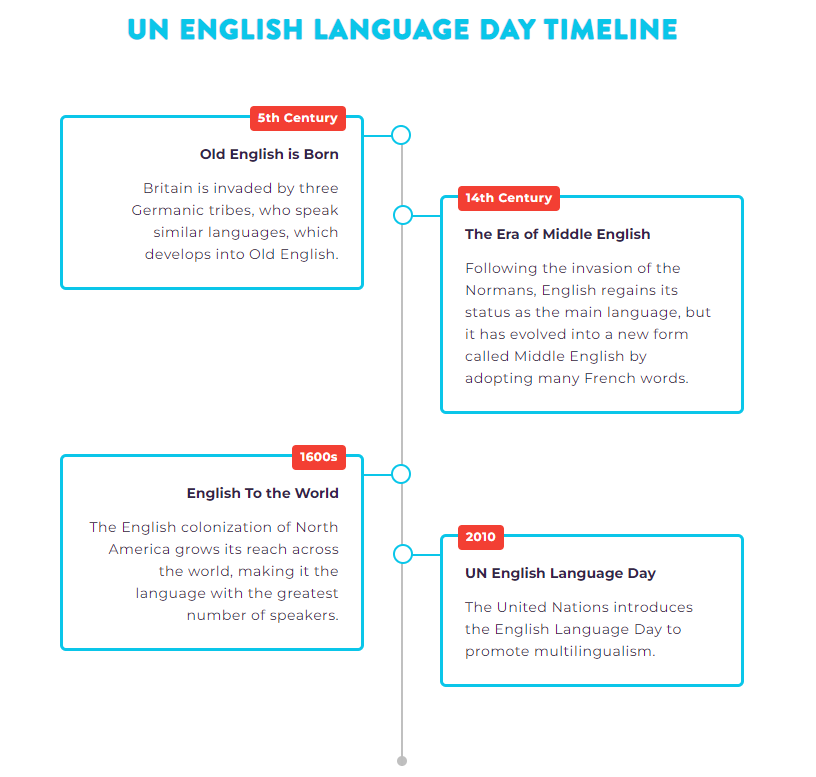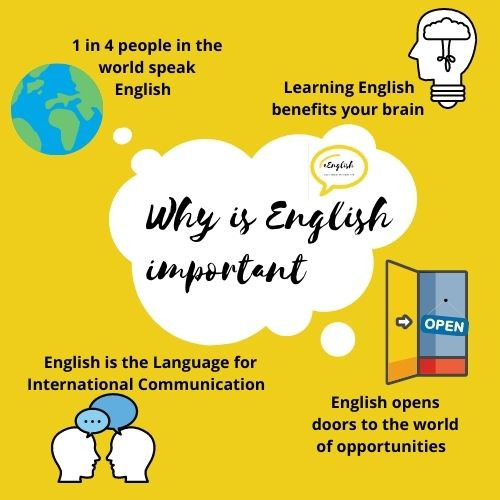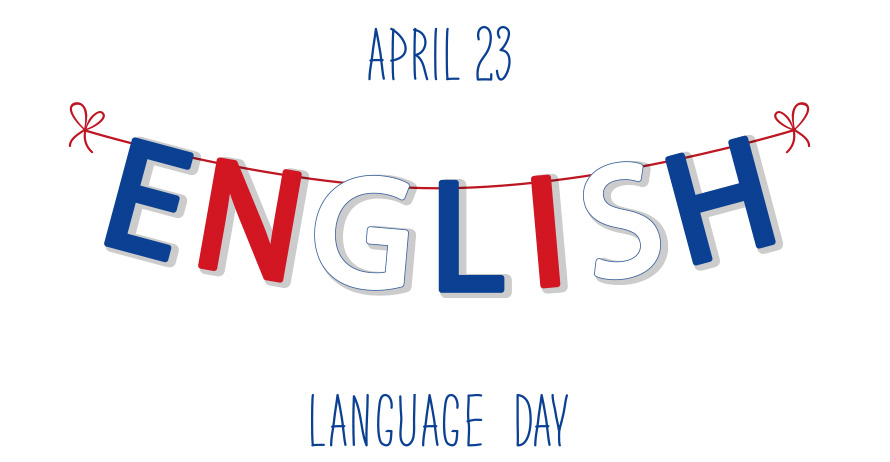By Penny Theodorakopoulou,
The United Nations English Language Day is celebrated annually on April 23 across the world. The inaugural UN observation day was held in 2010, with the goal of instilling respect, raising awareness, and celebrating the language’s history, culture, and achievements. The UN’s quote and goal for this day — “to celebrate multilingualism and cultural diversity as well as to promote equal use of all six official languages throughout the Organization”.
English is not the only language that is celebrated every year, though. UN duty stations across the world will commemorate six different days, each devoted to one of the Organization’s six official languages, as part of the program. These are (chronologically): French (March 20), Chinese (April 20), Spanish (April 23), Russian (June 6), and Arabic (December 18). Language Days at the UN strive to entertain as well as enlighten, with the purpose of raising knowledge and respect for each of the six working languages’ history, culture, and achievements among the UN community.
Why is the English language celebrated on the 23rd of April?
As with every International Day, UN English Language Day’s date has a meaning behind its date. Over four centuries ago, the “Bard of Avon” died on this very day — William Shakespeare. Born and dying on the same day (April 23, 1564-April 23, 1616), William Shakespeare is justifiably acknowledged as England’s national poet, having written 39 plays, 154 sonnets, 3 long narrative poems, and a few additional pieces, some of which are attributed to unknown authors. He is considered the ultimate advocate of the language, who has left an indelible mark on the English language with his incomparable contribution to the area of literature, playing a major part in popularizing the language. ‘Dauntless’, ‘lacklustre’, ‘arch-villain’, ‘new-fangled’, ‘multitudinous’, and many more are among the 422 new words and phrases coined by the famed dramatist. Interestingly, Shakespeare’s works and plays brought nearly 1,700 new terms to the English language.

History of the English language
The invasion of Britain by three Germanic tribes — the Angles, the Saxons, and the Jutes — in the 5th century AD marked the beginning of the English language. These Germanic tribes moved from what is now known as Denmark and northern Germany, crossing the North Sea and driving away from the ancient occupants, who spoke Celtic. The native Britons re-established themselves in what is now Scotland, Ireland, and Wales. The Angles spoke Englisc and came from Engla-land (land of the Angles). England and English are both derived from these terms.
Similar languages were spoken by the Germanic tribes, which developed into Old English. This language is not the same as modern English, and even native English speakers would struggle to grasp it. While Old English is no longer spoken, it serves as the foundation for contemporary English, and words like ‘be’, ‘strong’, and ‘water’ are all derived from it.
The Duke of Normandy, William the Conqueror, attacked and conquered England in 1066. As a result, the Norman language, a variant of French, became the language of the royal court and commerce, while English became the language of the lower classes. Despite these shifts in status, English continued to evolve, adopting Latin and French vocabulary.

The people of the British Isles overthrew French control in the 14th and 15th centuries, and the English language recovered its royal and commercial prominence. It was also a period of growth for the language in terms of literature and culture. William Shakespeare, for example, was a key figure in this process, for the reasons we mentioned above.
Due to international trade, the printing press, and classical study, the English language underwent a sequence of evolutions and developments beginning in the 1600s. The colonization of North America by the English promoted the language’s expansion and popularity even further. The language continues to evolve and flourish, including vocabulary from diverse English-speaking regions as well as newly generated terminology for business and technology.
The importance of English
Many consider English to be the “language of the world”, and it has subsequently borrowed grammar and vocabulary from a wide range of languages to serve as the second language of practically every country in and outside of Europe.
As it continues to expand and evolve with the contemporary world, this dominating tongue has also become the unofficial language of commerce and trade, and it remains the most commonly used language on social media. But why?

Among a variety of reasons, I chose to name four, which are also the most common ones:
1) English is the international language of communication: Despite the fact that English is not the world’s most frequently spoken language, it is the official language of 53 countries and the first language of around 400 million people. That is not all, however; English is also the most frequently spoken second language on the planet. According to the British Council, around two billion people will be studying English throughout the world by 2020.
As a result, it is quite probable that if you meet someone from another nation, you will be able to communicate in English. It provides you with an open door to the rest of the globe and allows you to contact people from all over the world.
2) English allows you to access more entertainment and the Internet: Many films, TV shows, novels, and music are now written and produced in English. If you know English, you will have no need for subtitles or translations in your native language. You will continue to develop your English listening and reading abilities by using these media.
The Internet’s primary language is now English. Every day, an estimated 565 million individuals access the Internet, and English is used by 52% of the world’s most popular websites. As a result, knowing this language gives you access to more than half of the content on the Internet that you would not have otherwise. If you know English, you will be able to communicate with more people online and use a wider range of things, whether for enjoyment or for business.
3) Your travels are way easier if you know English: Learning English makes it much simpler to go anyplace because it is spoken as a first language in 53 nations and as a second language in over 118 countries. Indeed, even in nations where the local language employs a different sort of alphabet, airport announcements, railway schedules, emergency alerts, and street signs are frequently available in English. It goes without saying that if you travel to a nation where you don’t know the language, you will almost certainly encounter someone who speaks English.
4) English gives you access to worldwide education: Last but certainly not least, since English is spoken in so many different countries there are thousands of schools and universities around the world that offer programs in English. If you speak good academic English, there are lots of opportunities for you to find an appropriate school and course to suit your needs. Find out about going to university in an English-speaking country.

A personal note for UN English Language Day
Today is a very special day to me, for the sole reason that we are celebrating not only English, but also multilingualism. Ever since my childhood years, I reminisce myself being asked what I wanted to do when I would grow up. Being an actress was flights of fancy, even though I still have a romanticized view of the world of theatre and acting. However, by the time I was 12, I was certain about what I wanted to do; and that was to teach English. From that age, and after 11 years, there has not been a day that I have not had even the slightest interaction with English — be it in films, TV shows, books, video games, or casual talking and texting with people all around the world.
I can say, undoubtedly, that English is my passion. Even though I am not studying English Language and Literature, I have convinced myself that sooner or later, I will make my dream come true; and that is to motivate other people to learn English and be passionate about the language that I, too, am literally in love with. Through English, I can express myself however I wish way easier than when I speak Greek, my native language; through English, I have met a plethora of amazing people, who continue to be in my life and be important to me; and through English, I have found myself, which is of utmost importance for every single one of us.
References
- The Importance of the English Language, british-study.com, Available here
- William Shakespeare, wikipedia.org, Available here
- English Language Day: Everything You Need to Know About the UN Observance Day, news18.com, Available here
- Celebrating the English language at the UN, un.org, Available here
- Celebrating Language: UN English Language Day, bubblestranslation.com, Available here




